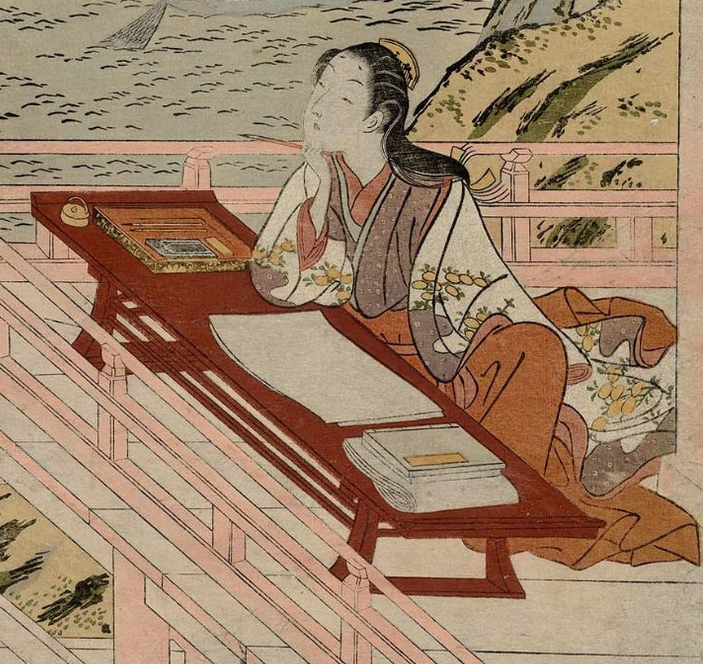Enter Murasaki Shikibu. When she was young, she learned Chinese and studied Chinese works. However, as an adult, she kept her knowledge a secret, as her culture frowned upon educated women.
Murasaki really got busy when she entered court service. She taught her mistress-pupil to learn Chinese in secret, and even reportedly tutored the Empress. The contributions she made to the royal palace can "be described as academic: philosophical, literary, and linguistic" (Waithe 9). During her time in the court, she also began to work on The Tale of Genji. Though she sadly didn't see it happen in her lifetime, Murasaki's novel eventually went on to be recognized and respected as one of Japan's greatest literary masterpieces.
As we return to the present, let's take away this message from Murasaki Shikibu's legacy: the crazy limitations a society places on women don't last, while the passion, creativity, and soul a women pours into what she creates will live on forever.
And what's not to love about that?
Waithe, M.E. A History of Women Philosophers, Parts 500-1600. Norwell: Kluwer Academic Publishers, 1989. Google Books. Web. 22 Sep. 2014.



 RSS Feed
RSS Feed